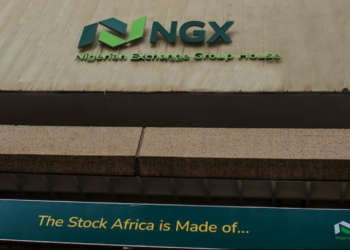Tax liability is an important aspect of your business and compliance obligations. Therefore, a key understanding of the tax regime, which operates in your area of operation, is quite important.
Taxes in Nigeria are of two categories: federal taxes and state taxes. Federal taxes include Companies Income Tax, Value Added Tax, Education Tax, etc. State taxes, on the other hand, include Personal Income Tax, Business Premises Tax, Development levy, etc.
There is usually a Body of Appeal Commissioners that is a court of first instance to handle Tax appeal cases. There is also a Value Added Tax Tribunal. If you are just starting your business, you need to know the taxes you are subjected to paying and have a tax plan in place to help you make the most of your entrepreneurial endeavours.

Companies income tax
This is a tax chargeable on all companies (other than companies engaged in petroleum operations) registered in Nigeria. It is an annual tax on the profits of registered companies, which profits must accrue in, be derived from, brought into, or received in Nigeria.
The rate of a company’s income tax is fixed at 30% of taxable income. This tax is remitted to the Federal Inland Revenue Service, and it is payable on a preceding year basis. Companies in the oil and gas field do not pay Company Income Tax; rather, they pay Petroleum Profit Tax which is charged at 85% of the chargeable income.
Value-added tax
Arguably the most popular tax in Nigeria, this is a tax payable by the consumer at 5%. It is a tax imposed on the supply of goods and services. All registered businesses are expected to register and have a VAT registration certificate, with their VAT registration numbers boldly displayed on all invoices. Although companies do not pay VAT, they are mandated by the government to collect VAT from consumers, then remit to the relevant tax body.
[READ MORE: Here are reasons your business should monitor its website)
So in essence, the business is an agent of the government for the purposes of collecting VAT. A failure to include VAT, or declare it is an offence that attracts serious fines and severe punishments. VAT filing is monthly, and always due on the 21st day of the subsequent month.
There are however some goods that are exempted from VAT; some examples are educational materials like books, medical and pharmaceutical products, newspapers and magazines, agricultural equipment and products, veterinary medicine, etc.
Capital gains tax
This is a 10% tax imposed on Capital Gains (Profit) arising from a sale, exchange or other disposition of properties known as chargeable assets. Capital gains are the profits that an investor realizes when he or she sells the capital asset for a price that is higher than the purchase price. Capital gains taxes are only triggered when an asset is realized/sold. Emphasis on profit, not sale price.
Education tax
This fund is made available to the Federal government by the companies, and no, it is not a voluntary contribution. All registered companies in Nigeria are required to pay a percentage of their assessable profit into an Education Tax Fund. The tax is charged at 2% of the assessable income.
Personal income tax
This tax is payable by all individuals and registered businesses and partnerships, except those registered under Part A of Companies and Allied Matters Act 1990 (incorporated companies). The State Inland Revenue Service administers the tax.
This is the rate of calculating personal income tax; First N300,000 of income @7%Next N300,000 of income @ 11%Next N500,000 of income @ 15%Next N500,000 of income @19%Next N1,600,000 of income @ 21%Above N3, 200,000 of income @ 24%.
Withholding tax
This technically isn’t a tax. It is an advanced payment of income tax deducted at source of specific transactions. The recipient of the income is entitled to utilize the withheld tax credit note or receipt, against the final tax obligations. The main purpose is to capture as many tax payers that may have evaded tax into the tax net. WHT rates are usually between 5-10%, depending on the type of transaction. Also, the collecting authority for this tax is the FIRS or State Inland Revenue Service.
If, for example, the amount payable by the purchaser is N2million and the relevant tax rate is 10%, then upon payment the purchaser will deduct N200,000 from the invoice of the supplier, then remit to the relevant tax authority.
Hotel occupancy and restaurants consumption tax
If you intend to venture into businesses such as hotels, restaurants, nightclubs, fast food outlets, bars, and event centres, you should be aware of this tax. Such business is expected to pay 5% tax on goods and services consumed by customers in addition to a further 10% penalty on the latter unremitted tax and the interest charged.

Pay As You Earn (P.A.Y.E)
This is a scheme by the Taxman to ensure that employees pay their taxes, and puts the duty on the employer to deduct the tax liability of the employees at source; thus, the employees are paid their net salaries. The employer on a monthly basis remits the tax to the State’s Internal Revenue Service, and a tax clearance for that month covers all employees of the company. The PAYE becomes applicable to a business or company with 4 or more employees.
Stamp duty tax
Stamp Duty is chargeable according to a scale fixed by the Joint Tax Board. This is tax paid to the federal or state governments on documents such as conveyances on sale, bills of exchange, promissory notes, agreements, contracts, etc. The federal government has the sole authority to impose charge and collect stamp duties in respect of documents relating to matters between a company and an individual, group or body of individuals.
While, the state government, on the other hand, has authority to collect stamp duty in respect of documents executed between individuals or persons at such rates imposed or agreed with the federal government.
[READ ALSO: How to build up your investment knowledge)

























And they want the economy to grow. They can’t even make a streamlined way of charging the tax, say a website where you just go and pay online and everything is automated including the clearance certificate. What a Country!
I’m leaving business because there’s too much taxing involved. This means I’m sending back my staff to the labour market, that’s going to have a toll on the economy.
Apparently, the Country just wants to take and take and not give any value back.
Take it from me experience-wise, in this Country things are different, you’re better of being an employee than running a business, cos the cost of running business is too high and your business will eventually crumble, or have very stunted growth compared with what is obtainable overseas. It’s not worth it.
Thanks for the piece. This is very informative.
However, I think the calculations of the Personal income tax is different for each State.
@Ayo the computations is the same. While some state may add additional tax levy to the already determined PAYE. E.g, Development levy. Cheer’s
@Loyola-
Have you tried running a business in the U.K – before? Do you even know, how much income tax the business owners pay in the U.k?
Sir, you promise to stay as an employee althrough ya active days- (that’s ya choice) many Nigerians have chosen business.
Keep ya discouraged Thoughts to yasef, please.
Thank you for the article on tax issue, please I want to ask which tax options is applicable to money lender?
I sincerely share the same view with Loyola sometimes I pay same tax twice because the system is not so organized
I believe its our civil responsibility to pay tax in order to build the nation ,this is where a substantial amount of the income of the country is derived ,having a business in Nigeria is hard we know but,having a business in another man;s country doesn’t help your country unless you are bringing the money to reinvest in your own country,please lets have a mind set that things will get better and forge on for not just us and our family but for the less privileged amongst us.
All the tax they collect, what do they use it for?
Pensioners struggle to get paid.
Bad roads; poor, expensive internet; no security; incessant power outage; police harassment; huge deposits into foreign banks, etc.
I don’t mind taxation, if only you see the money being spent to build the country, and cater for the citizens. When developed countries impose taxes, you see how they spend the money.
The Body of Appeal Commission and the VAT tribunal has been replaced with the Tax Appeal tribunal by virtue of Section 59 of the FIRSEA